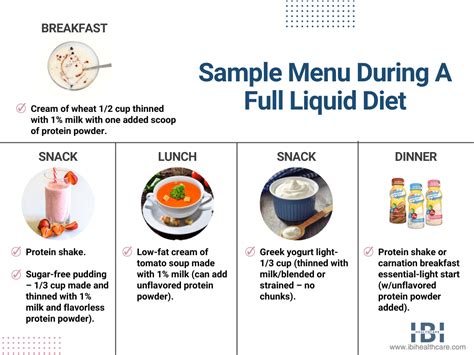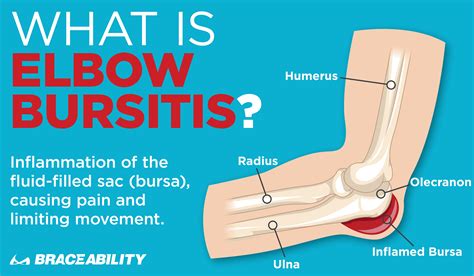12 Bariatric Diet Tips For Fast Weight Loss

Losing weight, particularly after bariatric surgery, can be a challenging and nuanced process. It requires a deep understanding of nutritional needs, dietary restrictions, and the importance of maintaining a healthy lifestyle. The journey to achieving and maintaining a healthy weight involves more than just diet; it encompasses a comprehensive approach to health, including physical activity, mental well-being, and a supportive environment. Here, we’ll delve into 12 essential bariatric diet tips designed to support fast and sustainable weight loss, while also emphasizing the overall health and wellness of individuals undergoing this significant lifestyle change.
1. Hydration: The Foundation of Health
Staying hydrated is crucial, especially after bariatric surgery. Water helps in digestion, absorption of nutrients, and, importantly, in reducing the risk of complications such as kidney stones. Aim for at least 8 cups (64 ounces) of water per day, spread out in small amounts to avoid discomfort. Herbal teas and low-sugar sports drinks can also contribute to your hydration goals but should be consumed in moderation.
2. Protein First: The Key to Satisfaction and Healing
Protein is essential for muscle mass, satiety, and the healing process. Post-bariatric surgery, prioritizing protein in your meals can help manage hunger, support muscle health, and ensure you’re getting enough nutrients. Aim for 60-80 grams of protein per day through sources like lean meats, fish, eggs, tofu, and dairy products. Protein shakes can be a convenient way to meet protein goals, especially in the early stages after surgery.
3. Eat Small, Frequent Meals
Given the reduced stomach size after bariatric surgery, eating small, frequent meals throughout the day can help manage discomfort and ensure you’re meeting your nutritional needs. Aim for 4-6 meals per day, including 2-3 main meals and 2-3 snacks. This approach can help prevent overeating, reduce symptoms of dumping syndrome, and maintain stable energy levels.
4. Choose Nutrient-Dense Foods
Focus on whole, unprocessed foods as much as possible. Vegetables, fruits, lean proteins, and whole grains provide essential vitamins, minerals, and fiber. These foods not only support overall health but also tend to be more filling, which can aid in weight loss. Include a variety of colors on your plate to ensure a broad range of nutrients.
5. Avoid High-Calorie Liquids and Sugary Drinks
High-calorie liquids, such as milkshakes, smoothies, and soda, can be particularly detrimental after bariatric surgery. They can lead to rapid consumption of calories, contribute to weight gain, and may trigger dumping syndrome. Opt for water, unsweetened tea, and black coffee instead.
6. Be Mindful of Fiber Intake
Fiber is crucial for digestive health and satiety, but introducing it too quickly after surgery can cause discomfort. Gradually increase your fiber intake over time, starting with small amounts and monitoring how your body reacts. High-fiber foods include whole grains, fruits, vegetables, and legumes.
7. Healthy Fats Are Your Friends
While it’s essential to keep overall fat intake in check, healthy fats like those found in nuts, seeds, avocados, and olive oil are beneficial. They support heart health, provide sustained energy, and can help in the absorption of certain vitamins.
8. Vitamins and Supplements: A Necessary Adjunct
After bariatric surgery, the absorption of certain nutrients can be impaired, making supplements a crucial part of your diet. Work closely with your healthcare provider to determine the best supplementation plan for your needs, which may include a multivitamin, vitamin B12, iron, calcium, and vitamin D, among others.
9. Understand and Manage Dumping Syndrome
Dumping syndrome can occur after eating too quickly, consuming high-sugar or high-fat foods, or not chewing food well enough. Symptoms include nausea, vomiting, diarrhea, and abdominal cramps. Managing dumping syndrome involves eating slowly, avoiding high-risk foods, and staying hydrated.
10. Keep a Food Diary
Tracking what you eat and how you feel can provide valuable insights into your dietary successes and challenges. A food diary can help you identify patterns, pinpoint trigger foods, and make informed adjustments to your diet.
11. Stay Active
While diet is a critical component of weight loss, physical activity is equally important. It not only burns calories but also improves overall health, enhances mood, and increases energy levels. Aim for at least 150 minutes of moderate-intensity exercise or 75 minutes of vigorous-intensity exercise per week, along with strength training exercises on 2 or more days a week.
12. Seek Support
Losing weight and maintaining weight loss can be challenging and isolating at times. Connecting with others who are going through similar experiences can provide encouragement, practical advice, and emotional support. Consider joining a support group, either in-person or online, and stay in close communication with your healthcare team.
In conclusion, the journey to weight loss after bariatric surgery is multifaceted and requires a holistic approach to health and wellness. By following these 12 tips and maintaining a commitment to your health goals, you can not only achieve significant weight loss but also cultivate a healthier, more vibrant you.
FAQ Section
What is the most important nutrient to focus on after bariatric surgery?
+Protein is often considered the most important nutrient after bariatric surgery, as it supports healing, muscle mass, and satiety. Aim for 60-80 grams of protein per day through a variety of sources.
How can I manage dumping syndrome after bariatric surgery?
+Managing dumping syndrome involves eating slowly, avoiding high-sugar and high-fat foods, chewing food thoroughly, and staying hydrated. It’s also crucial to identify and avoid trigger foods that can cause symptoms.
Why is it important to take vitamins and supplements after bariatric surgery?
+Vitamins and supplements are necessary because bariatric surgery can impair the absorption of certain nutrients. Supplements help ensure you’re getting enough vitamins and minerals for overall health and to prevent deficiencies.
How can physical activity support weight loss after bariatric surgery?
+Physical activity burns calories, improves overall health, enhances mood, and increases energy levels. Aim for a combination of aerobic exercise and strength training to support weight loss and muscle health.
Why is staying hydrated important after bariatric surgery?
+Staying hydrated is crucial for digestion, nutrient absorption, and preventing complications such as kidney stones. Aim for at least 8 cups (64 ounces) of water per day, and consider including low-sugar sports drinks and herbal teas in your hydration plan.
How can I avoid high-calorie liquids and sugary drinks after bariatric surgery?
+Avoid high-calorie liquids by opting for water, unsweetened tea, and black coffee instead of milkshakes, smoothies, and soda. Pay attention to food labels and choose low-calorie, low-sugar options to support your weight loss goals.



